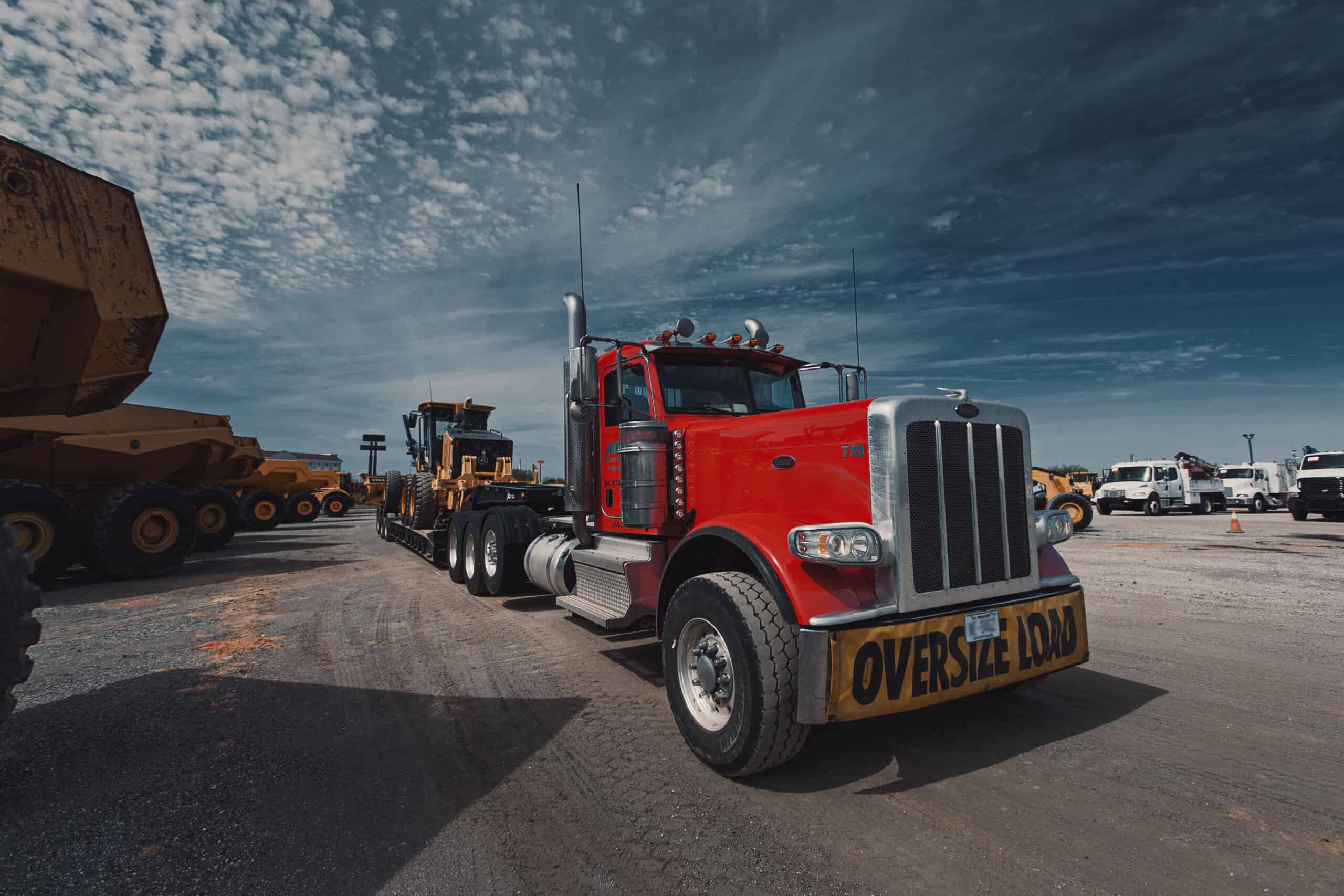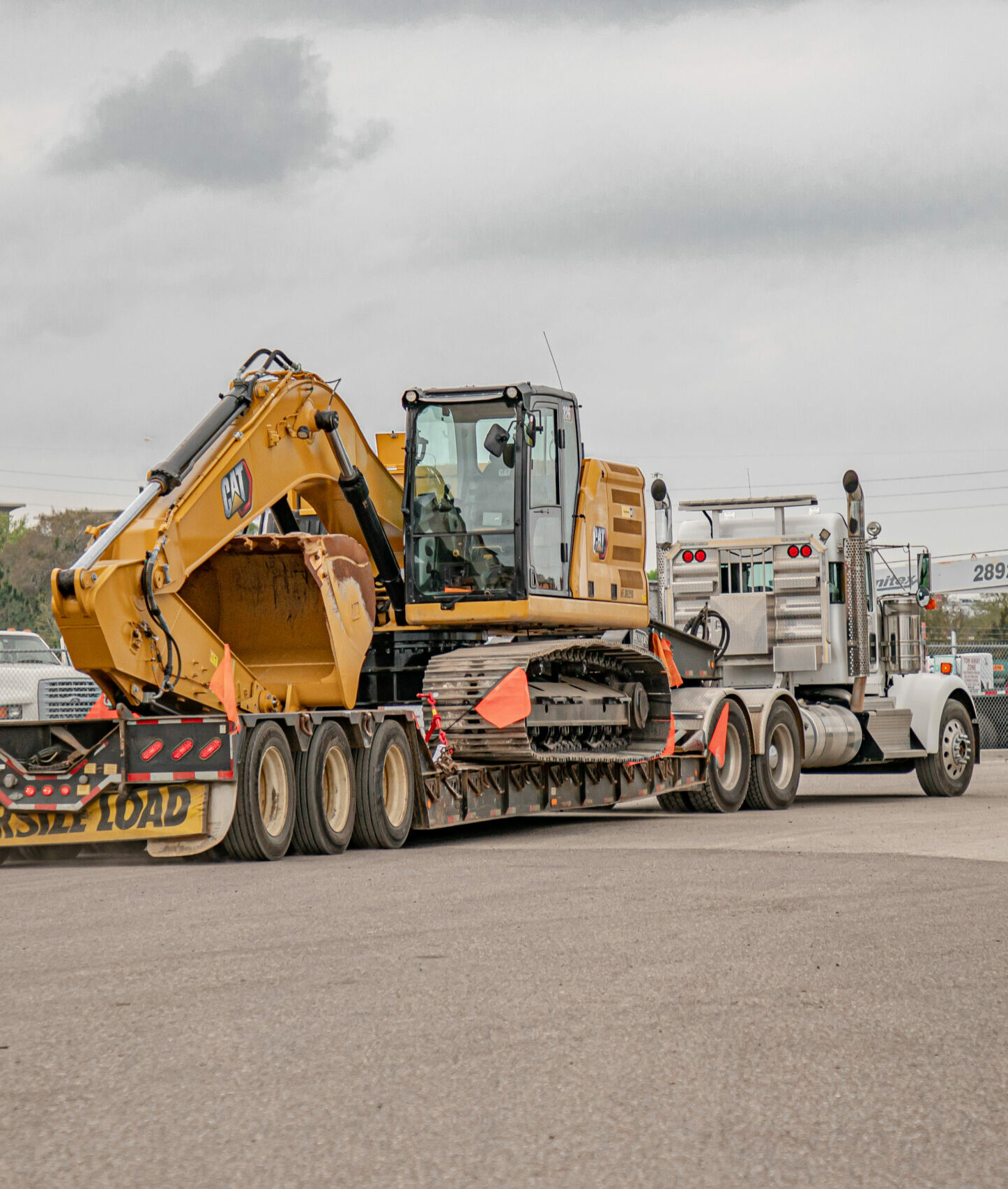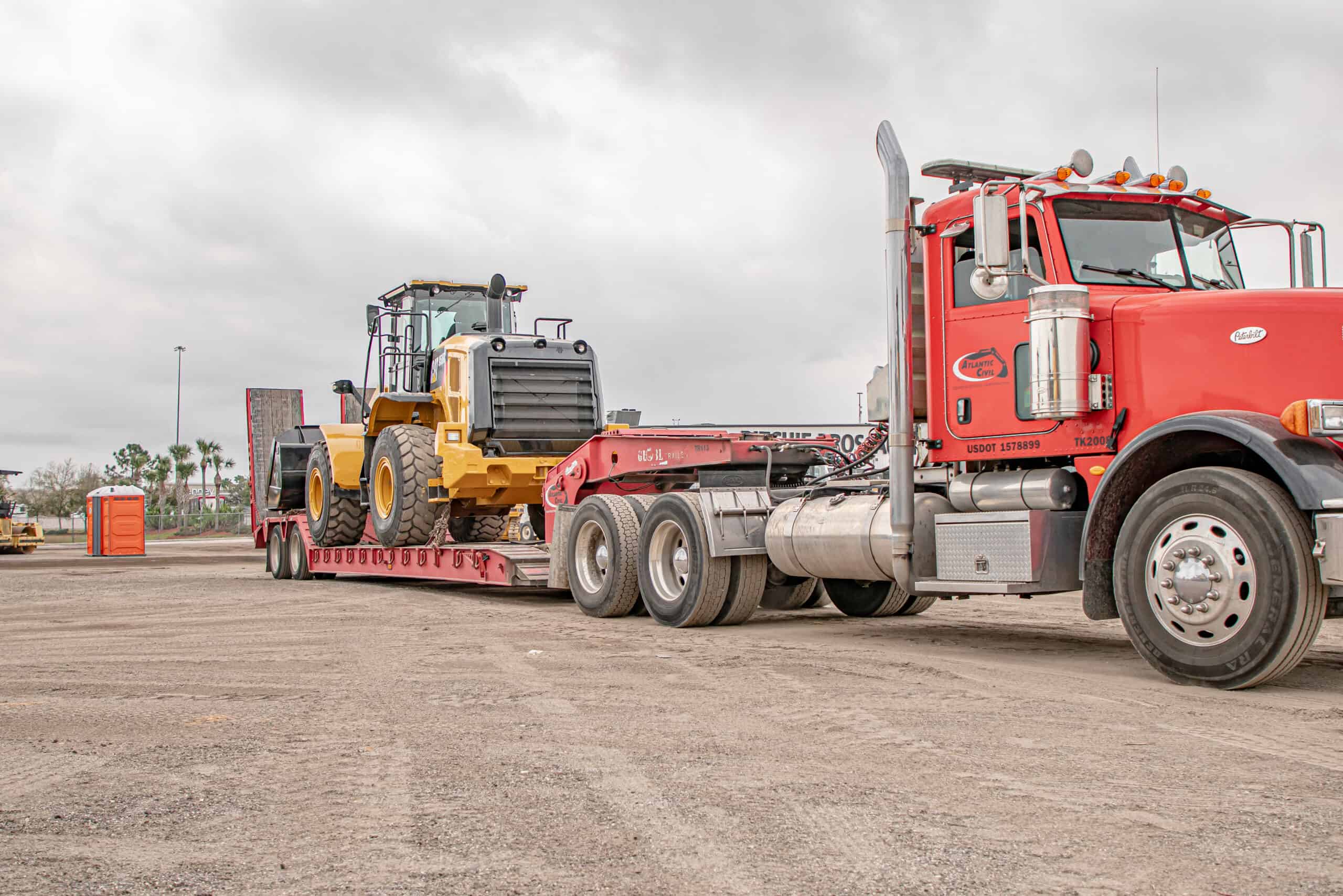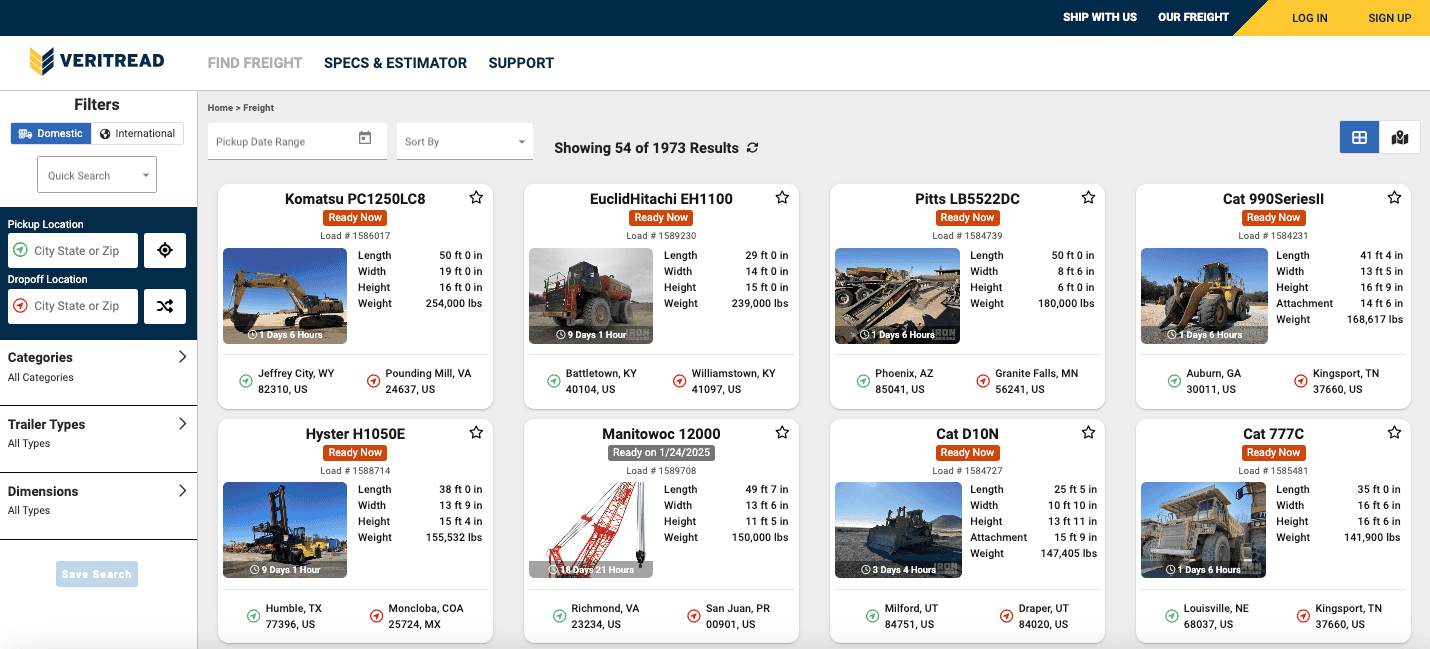Choosing the Best Equipment Hauling Companies

Transporting heavy equipment is no small task. Whether you’re moving construction machinery, agricultural tools, or oversized loads, choosing the right equipment hauling company is important. The right partner ensures your valuable assets are transported safely, efficiently, and in compliance with all regulations. But how do you know which company to trust?
In this article, we’ll talk about the factors to consider when selecting equipment hauling companies. From verifying licenses and insurance to understanding pricing structures and how companies manage permits, we’ll provide you with all the information you need to make an informed decision.
Outline:
- Is The Hauling Company Licensed, Bonded, and Insured?
- Does The Company Operate As A Carrier Or A Broker?
- How Does The Company Determine Pricing For Hauling Services?
- What Is The Company’s Policy On Payment Schedules And Potential Additional Fees?
- How Does The Company Handle Permits And Regulations For Heavy Haul Transportation?
Is The Hauling Company Licensed, Bonded, and Insured?
The first and most important consideration when choosing an equipment hauling company is verifying their credentials. A reputable company should:
- Be Licensed: Ensure the company has the necessary state and federal licenses to operate. Look for Department of Transportation (DOT) and Motor Carrier (MC) numbers to confirm their legitimacy.
- Be Bonded: This provides an extra layer of financial protection for clients in case of damages or disputes.
- Carry Adequate Insurance: Ask about their liability and cargo insurance policies. This ensures that your equipment is protected during transit.
Failing to verify these credentials could leave you vulnerable to financial losses and legal issues.
Does the Company Operate as a Carrier or a Broker?
Understanding the company’s role in the transportation process can help you set realistic expectations:
- Carriers: These companies own and operate their own fleet of trucks and are directly responsible for transporting your equipment.
- Brokers: Brokers act as the mediator, connecting you with carriers. They don’t own trucks but rely on a network of trusted partners.
Both options have their pros and cons. Carriers often provide more direct communication and control over the transport process, while brokers can offer greater flexibility and access to a larger pool of trucks.
How Does the Company Determine Pricing for Hauling Services?
Pricing is a critical factor, and understanding how rates are calculated can save you from unexpected surprises. Companies typically base their pricing on:
- Distance: The longer the distance, the higher the price.
- Weight and Volume: Heavier and larger loads generally cost more to transport.
- Type of Load: Some materials are more difficult or expensive to handle (e.g., hazardous materials, oversized items).
- Fuel Costs: Fluctuations in fuel prices directly impact transportation costs.
- Labor Costs: The number of workers and the time required to load, transport, and unload the materials.
- Equipment Costs: The type of equipment needed (trucks, trailers, specialized machinery) and their maintenance costs.
- Insurance and Permits: Costs associated with insurance, permits, and other legal requirements.
- Market Demand: Supply and demand dynamics within the transportation market can influence pricing.
- Competition: Companies may adjust their prices based on the competition in their local market.
Common Pricing Methods:
- Per Mile Rate: A set price per mile traveled.
- Hourly Rate: A set price for each hour of labor.
- Flat Rate: A fixed price for the entire job, regardless of the time or distance.
- Weight-Based Pricing: A price based on the weight of the load.
To Get An Accurate Price Quote:
- Contact multiple hauling companies: Get quotes from several companies to compare prices and services.
- Provide detailed information: Be as specific as possible about the nature of the load, the origin and destination, and any special requirements.
- Ask about any additional fees: Inquire about potential extra charges for things like fuel surcharges, tolls, or unexpected delays.
By carefully considering these factors and obtaining multiple quotes, you can ensure that you are getting a fair and competitive price for your hauling needs.
What Is The Company’s Policy On Payment Schedules And Potential Additional Fees?
Before signing a contract, it’s important to understand the payment terms and any potential extra charges. Key questions to ask include:
- Payment Schedules: Does the company require full payment upfront, or can it be split into installments?
- Deposit Requirements: Some companies may ask for a deposit to secure your booking.
- Cancellation Fees: Understand the company’s policy if you need to cancel or reschedule the service.
- Extra Charges: Be aware of potential fees for delays, storage, or changes to the route.
Clarifying these policies upfront can help avoid misunderstandings and ensure a smooth transaction.
How Does the Company Handle Permits and Regulations for Heavy Haul Transportation?
Heavy haul transportation involves significant regulations and permit requirements to ensure safety and compliance. Here’s how reputable hauling companies typically handle these aspects:
Obtaining Necessary Permits:
- Oversize/Overweight Permits: For loads exceeding weight or dimensional limits, companies must obtain permits from each state traversed. These permits often involve detailed route planning, bridge inspections, and potential escorts.
- Special Permits: Depending on the nature of the load (e.g., hazardous materials, live animals), additional specialized permits may be required.
- Route Surveys: Companies conduct thorough route surveys to identify potential challenges like low bridges, narrow roads, and tight turns.
- Escort Services: In some cases, escorts (pilots) may be required to guide the heavy haul vehicle safely through challenging areas.
- Traffic Control: Traffic control measures may be necessary at intersections and other critical points to ensure safety.
- Federal Motor Carrier Safety Administration (FMCSA) Regulations: Companies must adhere to all FMCSA regulations, including driver hours of service, vehicle maintenance, and safety standards.
- State and Local Regulations: Compliance with specific state and local regulations regarding weight limits, dimensions, and route restrictions is crucial.
By handling permits and regulations, reputable hauling companies prioritize safety, minimize delays, and ensure smooth transportation of heavy haul loads.
Do You Need Help or Have More Questions About Shipping Your Heavy Equipment?
VeriTread is your go to solution for heavy equipment transport. We can transport your freight to any destination in North America in a safe and timely manner. We are experts in connecting you with a transport provider that can handle all the paperwork, select the right trailer and driver, and chart the most efficient route.
VeriTread moves thousands of machines every year and can quickly generate a reliable estimate on the go. Our extensive specs and dimensions database of 60,000+ items, ensures you spend less time researching and more time putting your equipment to work. The VeriTread Shipper quote process is the simplest way to receive competitive quotes from vetted transport providers. Follow these easy steps and you will receive a quote in under one minute:
- Select Ready To Ship from the Freight Options Page
- Enter a Manufacturer & Model
- Verify or Edit Your Machine Dimensions
- Enter Pickup & Drop Off Locations
- Your Quote is Ready!
veritread products
Top Articles
Freight Types
recent posts

Basic Tips of Heavy Equipment Transport

Understanding Equipment Transport Services


